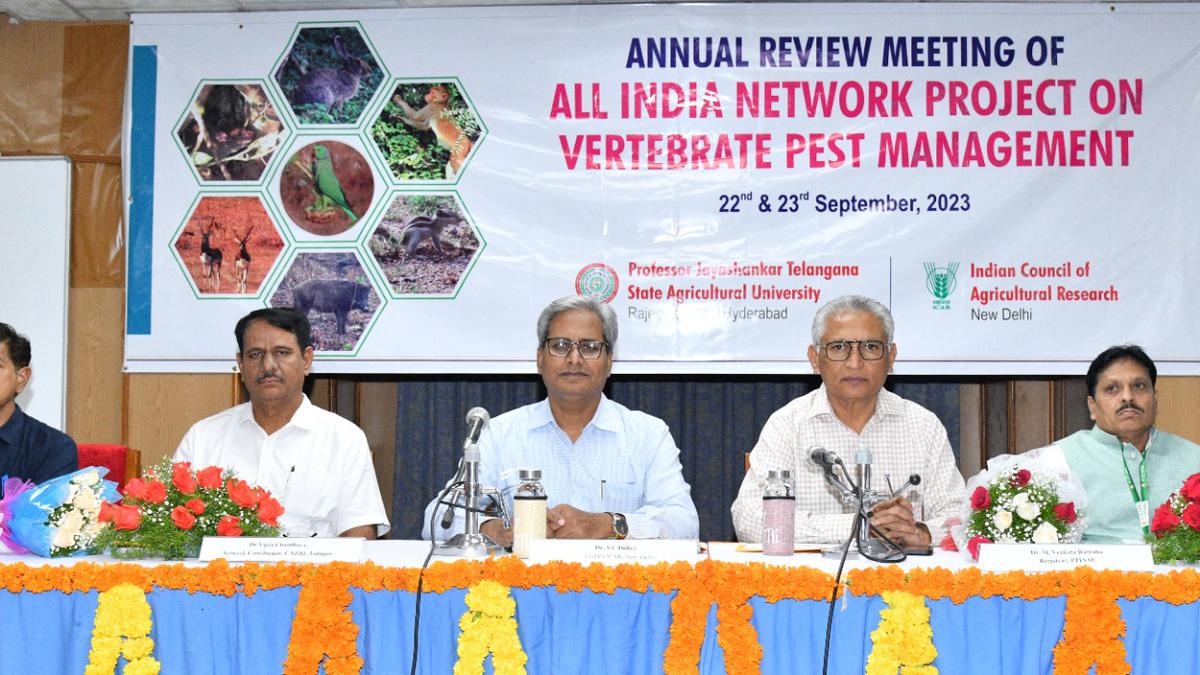
Meet suggests multi-pronged strategy to reduce crop loss from pests
The Hindu
All India Network Project on Vertebrate Pest Management suggests multi-pronged strategy to reduce crop loss. These include changing food patterns and birth control measures. Convergence of projects and research needed. Solar fencing and agri canons have good impact.
A meeting of the All India Network Project on Vertebrate Pest Management here on Friday suggested a multi-pronged strategy to reduce and prevent crop loss from vertebrate pest attacks. These include changing food patterns and implementing birth control measures to reduce pest population.
At the inaugural event of the two-day review meeting, organised jointed by Professor Jayashankar Telangana State Agricultural University (PJTSAU) and Indian Council of Agricultural Research (ICAR), assistant director general of ICAR S.C. Dubey said the vertebrate pest management methods should be devised within the purview of the laws of the land.
Further, he suggested taking up vertebrate pest management with the convergence of various ongoing projects and vertebrate-specific research.
PJTSAU registrar M. Venkataramana said protecting standing crops, particularly those in the harvesting stage, was a huge challenge as crop loss from vertebrates such as wild boars, monkeys, peafowl and antelopes was very high.
He explained that measures such as solar fencing and agri canons had a good impact in minimising crop loss from pest attacks, and they were environment-friendly too. He, however, felt that there was a need to bring changes in the pest management methods using technology.
Several publications, pamphlets, brochures and other literature on vertebrate pest management methods were released on the occasion. The coordinator of the national network Vipin Chowdhury explained the progress of the project. Director (research) of PJTSAU P. Raghurami Reddy, principal scientist (vertebrate pest management) V. Ravinder Reddy and others participated.

More than 2.6 lakh village and ward volunteers in Andhra Pradesh, once celebrated as the government’s grassroots champions for their crucial role in implementing welfare schemes, are now in a dilemma after learning that their tenure has not been renewed after August 2023 even though they have been paid honoraria till June 2024. Disowned by both YSRCP, which was in power when they were appointed, and the current ruling TDP, which made a poll promise to double their pay, these former volunteers are ruing the day they signed up for the role which they don’t know if even still exists

















